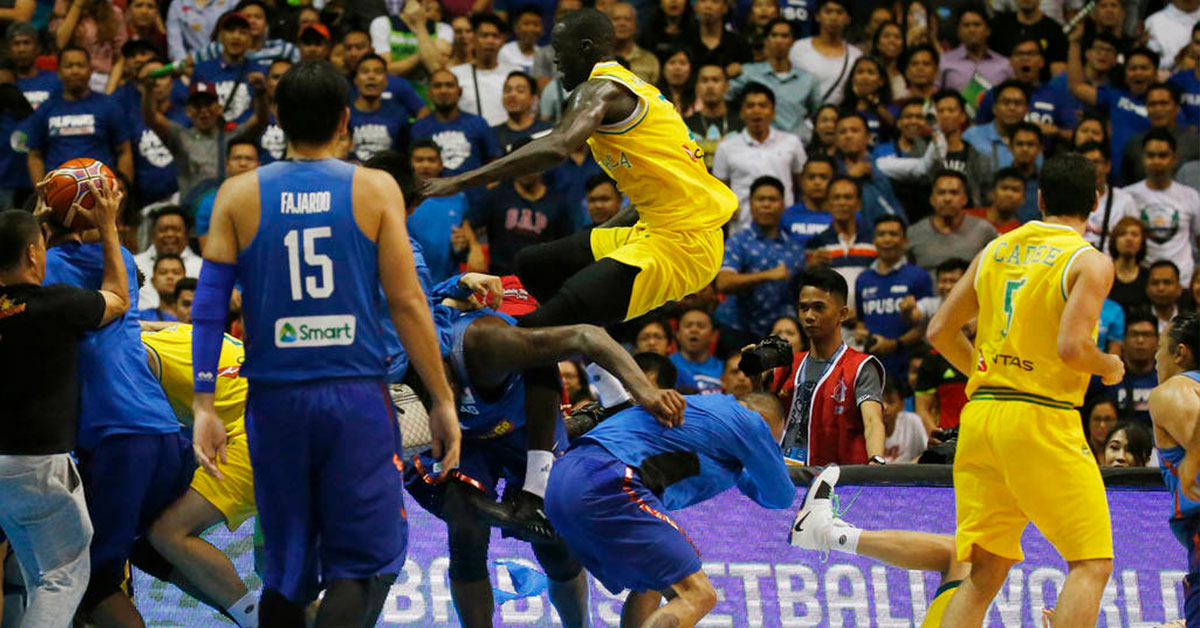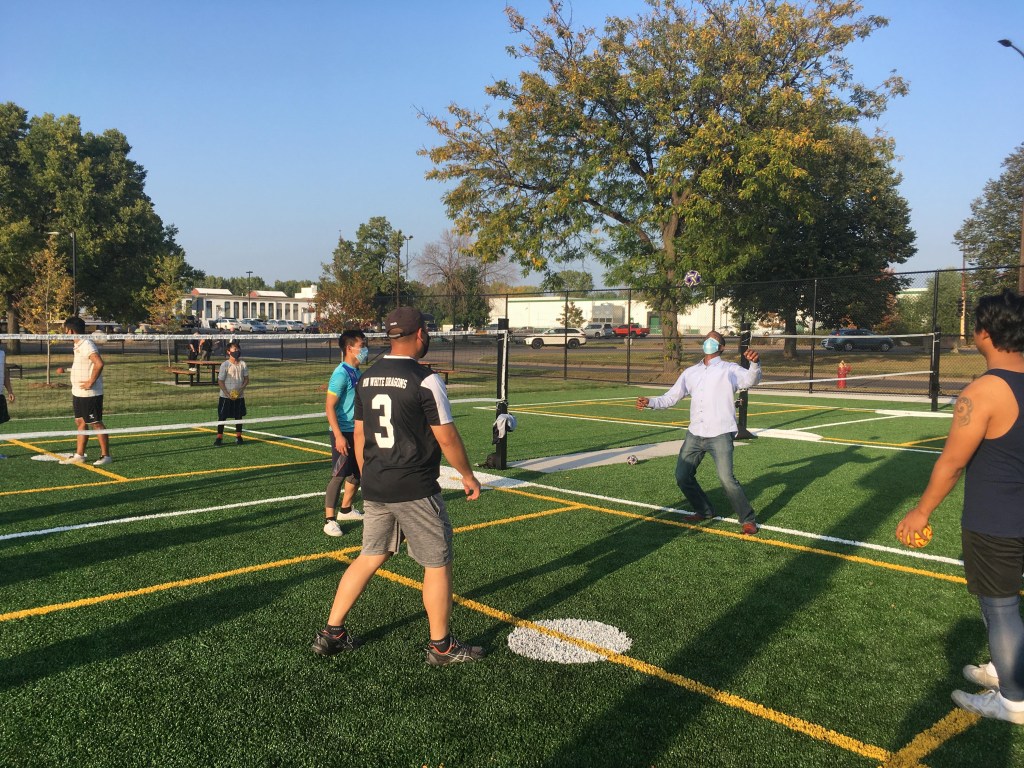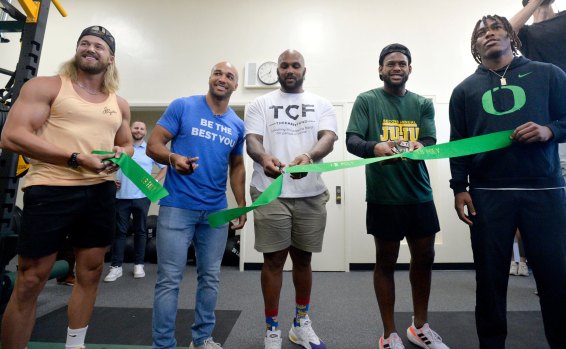Which Professional Sport Offers the Most Enduring Careers?
Professional golf has the longest average career among all professional sports. The average golfer can compete professionally well into their 40s and even 50s.
This durability is due to the less physically demanding nature of the sport compared to others like football or basketball. Professional golfers often have longer careers because they can continue to compete at a high level with age and experience.
Additionally, the golf industry provides ample opportunities for retired players to transition into coaching, broadcasting, or other roles within the sport, allowing them to continue their involvement long after their playing careers end. Overall, professional golfers enjoy the longest average careers compared to athletes in other sports.
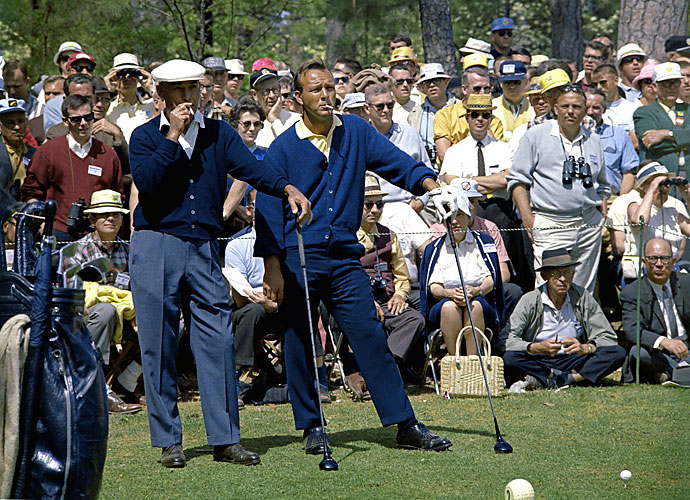
Credit: www.goal.com
The Evolution Of Professional Sports
The professional sport with the longest average career spans is golf, where players can continue to compete at a high level well into their 40s and even 50s.
How Professional Sports Have Evolved Over The Years
Professional sports have undergone significant changes over the years, with advancements in technology and training methods reshaping the way athletes prepare for and extend their careers. Gone are the days when athletes participated in sports merely for the love of the game.
Today, sports have become a lucrative career option, attracting individuals from diverse backgrounds who aspire to make a mark in their chosen fields. In this section, we will explore the evolution of professional sports, focusing on the rise of sports as a career option and the impact of technology and training methods on career longevity.
The Rise Of Sports As A Career Option:
- Athletes are now able to pursue professional sports as a viable career choice due to various factors:
- Increased exposure and popularity: Professional sports have garnered immense popularity and gained global recognition. Athletes now have the opportunity to showcase their skills on a larger stage and attract lucrative endorsement deals.
- Financial incentives: The monetary rewards associated with professional sports have grown exponentially, presenting athletes with the chance to earn substantial incomes. This has played a significant role in encouraging more individuals to pursue sports as a full-time career.
- Improved infrastructure: The development of state-of-the-art sports facilities, training centers, and academies has provided aspiring athletes with the necessary resources to enhance their skills and compete at elite levels.
Impact Of Technology And Training Methods On Career Longevity:
- Technological advancements and innovative training methods have had a profound effect on career longevity in professional sports:
- Injury prevention and rehabilitation: Advanced equipment and medical techniques have greatly contributed to the prevention and treatment of injuries, enabling athletes to prolong their careers. This includes the use of wearable technology to monitor health and performance metrics.
- Enhanced performance analysis: Athletes now benefit from sophisticated data analysis tools that provide valuable insights into their performance, strengths, and weaknesses. Coaches and trainers can use this information to develop personalized training programs and optimize performance.
- Specialized training regimens: Athletes today have access to specialized training programs tailored to their specific sport, allowing them to improve their skills, strength, and agility under expert guidance. This targeted approach enhances their overall performance and reduces the risk of burnout or overexertion.
As professional sports continue to evolve, athletes are presented with more opportunities to extend their careers through advancements in technology and training methods. The rise of sports as a viable career option, coupled with the focus on injury prevention and enhanced performance, ensures that athletes have the best possible chance of enjoying longer and more successful careers.
Factors Influencing Career Durability In Professional Sports
Professional sports have various factors that influence career durability, such as physical demands, injury risks, and the nature of the sport. While average career lengths can vary across different sports, some studies suggest that professional golfers have the longest average careers due to factors like fewer physical injuries and the ability to compete at a high level for a longer period.
Professional sports careers are a unique blend of physical, mental, and skill-based challenges. The length of a professional athlete’s career depends on several key factors, including the physical demands and risk of injury, the role of talent and skill development, and the significance of mental fortitude and resilience.
Let’s dive deeper into each of these factors to better understand their impact.
Physical Demands And Risk Of Injury:
- Rigorous training: Athletes undergo years of intense training to condition their bodies for the demands of professional sports.
- High-intensity performance: Professional sports require athletes to consistently perform at the peak of their physical abilities, exerting immense energy.
- High-risk activities: The nature of certain sports, such as football or contact sports, involves a higher risk of injuries due to collisions, tackles, or falls.
- Repetitive stress: Athletes often face repetitive motion injuries, such as tendonitis or stress fractures, due to the repetitive nature of certain movements.
- Rehabilitation and recovery: Time spent recovering from injuries plays a significant role in career longevity. Proper rehabilitation and recovery protocols are crucial to ensuring athletes can return to their previous performance levels.
The Role Of Talent And Skill Development:
- Natural abilities: Certain athletes possess inherent athletic abilities that contribute to their success in professional sports.
- Skill development: Mirroring the physical demands, athletes also need to invest time and effort into enhancing their skills, technique, and knowledge of the game.
- Coaching and mentorship: Having competent coaches and experienced mentors can significantly contribute to an athlete’s development and career durability.
- Adaptability: The ability to adapt to changing game strategies, new technologies, and evolving sports trends is crucial for athletes aiming for a long and successful career.
- Continuous learning: Constantly seeking improvement and refining skills through practice and ongoing education helps athletes stay competitive.
The Significance Of Mental Fortitude And Resilience:
- Psychological pressure: Professional sports often come with intense pressure to perform, deal with high-stakes competitions, and handle public scrutiny.
- Emotional well-being: Athletes face various challenges, including dealing with losses, high expectations, and balancing personal and professional lives. Maintaining emotional well-being is key to sustaining a lengthy career.
- Mental training: Engaging in mental training techniques like visualization, meditation, and mindfulness helps athletes develop mental resilience and focus.
- Motivation and determination: Successful athletes are driven by a deep motivation to reach their goals, withstand setbacks, and regain focus even in the face of adversity.
- Competitive mindset: Professional sports require athletes to maintain a competitive mindset, constantly striving for excellence and seeking opportunities to improve.
Professional athletes need to navigate the physical demands and risks, continually develop their skills, and possess mental fortitude and resilience to sustain a long and successful career in their respective sport. Understanding these factors is crucial for aspiring athletes and fans alike, as they highlight the challenging nature of professional sports and the dedication required to excel.
Football: The Ultimate Test Of Endurance
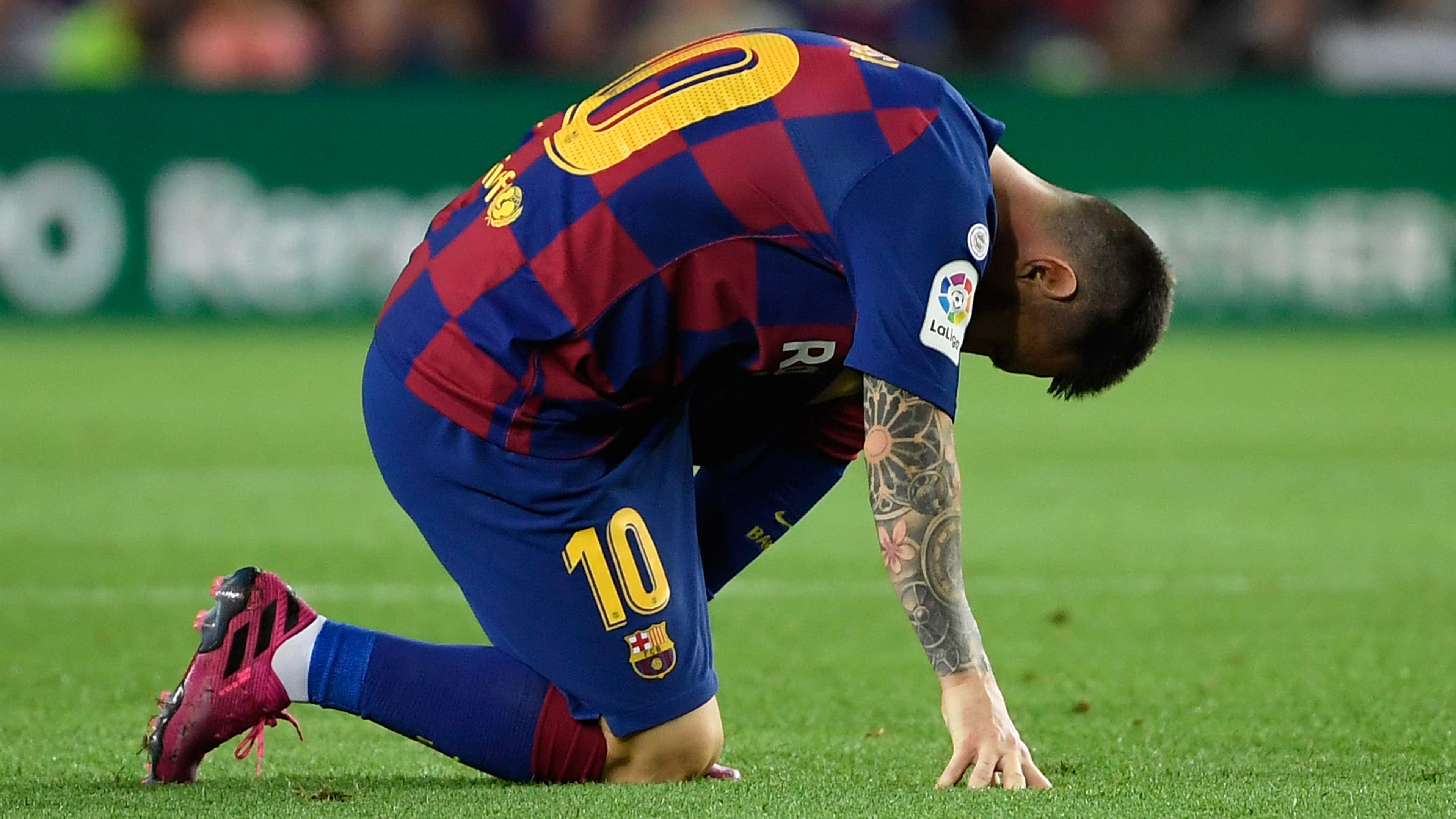
Football, known for its rigorous demands, puts athletes’ endurance to the test, leading to one of the longest average careers among professional sports. With its combination of physical stamina and mental resilience, football offers a challenging and rewarding career path for athletes.
Football is a sport that pushes athletes to their physical limits, demanding not only strength but also agility and endurance. It is known for its high intensity and fast-paced nature, making it a challenging and exciting game to watch. In this section, we will explore the physical demands and injury risks associated with football, the longevity of football careers for successful players, and how training and skill progression impact the durability of a football career.
Physical Demands And Injury Risk In Football:
- Football requires players to constantly be on the move, sprinting, jumping, and changing directions.
- Players need to be able to withstand physical contact and collisions with other players.
- The sport requires a combination of strength, speed, agility, and endurance.
- Common football injuries include sprains, strains, fractures, concussions, and torn ligaments.
- The repeated impact and strain on the body can lead to long-term health issues.
Longevity Of Football Careers: A Closer Look At Successful Players:
- Many factors, such as skill level, genetics, and injury history, can influence the length of a football career.
- Successful football players often have a combination of talent and determination.
- Some players retire early due to chronic injuries or a decline in performance.
- A few exceptional players manage to have careers that span over a decade.
How Training And Skill Progression Impact Career Durability In Football:
- Proper training and conditioning can help football players improve their performance and reduce the risk of injuries.
- Strength and resistance training help build muscle strength and enhance endurance.
- Skill progression, such as improving technique and game strategy, can contribute to a longer and more successful football career.
- Ongoing physical therapy and rehab help players recover from injuries and prevent further damage.
Football is a sport that tests an athlete’s endurance, both physically and mentally. The physical demands and injury risks associated with football make it a challenging profession. However, with proper training, skill progression, and a bit of luck, football players can have long and successful careers.
Basketball: Skill-Based Excellence
Basketball stands out as a professional sport with the longest average career among athletes, showcasing skill-based excellence and dedication to the game. With its fast-paced action and defined roles for team members, basketball offers opportunities for players to thrive and extend their careers.
Basketball is a highly skilled sport that demands agility, speed, and precision. Players must possess exceptional ball-handling skills, shooting accuracy, and the ability to make split-second decisions. With intense physicality and fast-paced gameplay, basketball presents unique challenges to athletes. Let’s explore the various factors that contribute to the longevity of basketball careers.
The Unique Demands Of Basketball On The Body
Basketball places significant stress on the body due to its dynamic nature and frequent changes in speed and direction. Here are the specific demands of the sport that impact athletes’ longevity:
- Jumping and landing: Basketball requires repetitive jumping and landing, increasing the risk of lower-body injuries. Players who can consistently manage these demands often enjoy longer careers.
- Running and sprinting: The fast-paced nature of basketball mandates continuous running and sprinting, putting strain on stamina and endurance.
- Physical contact: Contact is an inherent aspect of basketball, leading to bumps, collisions, and occasionally, more serious injuries. Players need to possess durability and resilience to navigate through physical challenges.
Notable Basketball Players With Enduring Careers
Over the years, several basketball players have defied age and continued to excel, leaving a lasting legacy in the sport. Here are some notable examples:
- Kobe Bryant: Known for his dedication and work ethic, Kobe Bryant played 20 seasons in the NBA before retiring at the age of 37. He showcased exceptional skill and adaptability throughout his career, defying the passage of time.
- Lebron James: Regarded as one of the greatest basketball players of all time, LeBron James has displayed remarkable longevity. With over 18 seasons under his belt, he continues to dominate the court at the age of 37.
- Dirk Nowitzki: As a power forward, Dirk Nowitzki enjoyed a stellar 21-season career, becoming one of the most accomplished international players in NBA history. His shooting accuracy and ability to adjust his playstyle contributed to his enduring success.
How Different Playing Positions Influence Career Longevity In Basketball
The positions players assume on the basketball court can significantly impact their career longevity. Here’s a breakdown of different positions and their effect on players’ ability to maintain lengthy careers:
- Point guard: Point guards typically have shorter careers due to the demanding nature of their role as team organizers and playmakers. Their speed, agility, and ball-handling skills need to remain exceptional for peak performance.
- Shooting guard: Shooting guards often possess great scoring ability and athleticism. While they face physical challenges, their skill set allows for more prolonged careers compared to point guards.
- Small forward: Small forwards have versatility on both ends of the court. They must excel in shooting, defense, and rebounding. Their well-rounded skills enable them to endure longer in the game.
- Power forward: Power forwards are physical players who excel at scoring close to the basket and rebounding. Their durability and strength contribute to extended careers.
- Center: Centers, often the tallest players on the court, bear the physical brunt of basketball. They frequently engage in physical battles under the hoop, requiring significant endurance and resilience to enjoy extended careers.
Basketball’s skill-based excellence places unique demands on players, both mentally and physically. The ability to adapt, maintain specific skill sets, and endure the sport’s physical toll significantly influences the longevity of basketball careers. Notable players who have thrived and excelled for many seasons serve as inspiring examples for aspiring athletes.
Tennis: The Balance Of Skill And Technique
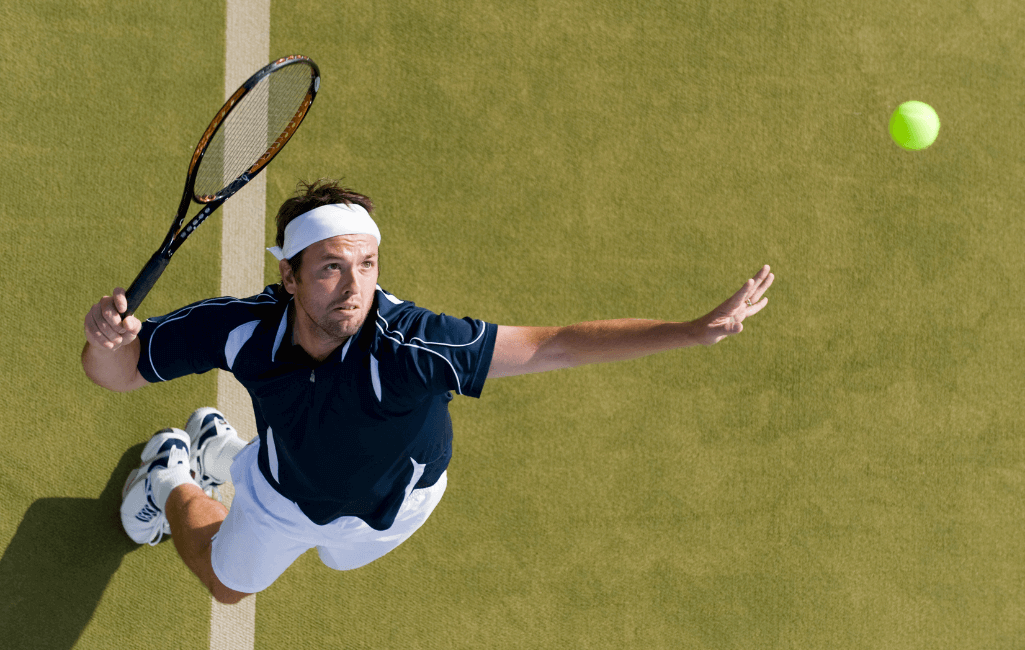
Discover the lasting careers of professional tennis players, known for their impeccable skill and technique, making tennis one of the sports with the longest average career spans. Their dedication and training allow them to compete and thrive at the highest level for an extended period of time.
Tennis is a sport known for its combination of skill, technique, and physical fitness. With its fast-paced rallies and explosive movements, it comes as no surprise that tennis players require a good level of physical fitness to excel in the game.
In this section, we will explore the impact of physical fitness on tennis careers, discuss prominent tennis players with remarkable longevity, and delve into how playing surface and playing style affects career durability in tennis.
The Impact Of Physical Fitness On Tennis Careers:
- Adequate physical fitness is essential for tennis players to endure the demanding nature of the sport:
- Stamina: Tennis matches can be grueling and often last for several hours. Players with superior endurance have a higher chance of maintaining their level of play throughout a match.
- Agility: Quick reflexes and agility are crucial in tennis, enabling players to react swiftly to opponents’ shots and move around the court efficiently.
- Strength: The power behind serves and groundstrokes is dependent on a player’s strength. A well-toned body allows players to generate more force, resulting in powerful shots.
Prominent Tennis Players With Remarkable Longevity:
- Tennis has witnessed a number of players who have extended their careers well into their thirties and even beyond. Some notable examples include:
- Roger Federer: The Swiss maestro, known for his graceful style of play, has managed to maintain a high level of performance even in his late thirties.
- Serena Williams: This American superstar has dominated women’s tennis for over two decades, showcasing her remarkable longevity and ability to adapt to new challenges.
- Martina Navratilova: With a career spanning from the 1970s to the 1990s, Navratilova is regarded as one of the greatest female tennis players of all time. Her longevity is a testament to her dedication and exceptional skills.
How Playing Surface And Playing Style Affect Career Durability In Tennis:
- Playing surface:
- Hard courts: The most common surface in professional tennis, hard courts are relatively harder on the body compared to other surfaces. The increased impact and higher risk of injury may result in shorter careers.
- Grass courts: Grass courts tend to be more forgiving on the body due to their softer nature. However, the unique challenges of playing on grass demand specific skills, which can affect career longevity.
- Clay courts: The slow and forgiving surface of clay reduces the amount of stress on players’ bodies. Many players have enjoyed longer careers due to the reduced risk of injury.
- Playing style:
- Aggressive baseliners: Players who rely on powerful groundstrokes and aggressive play may be more prone to injuries, potentially shortening their careers. The constant strain on their bodies from executing forceful shots can take a toll over time.
- Serve and volley players: The style of play adopted by serve and volley players, characterized by frequent net approaches, can result in increased wear and tear on the body. As a result, their careers may be relatively shorter compared to other playing styles.
Tennis careers are influenced by several factors such as physical fitness, playing surface, and playing style. While physical fitness is crucial for enduring the demands of the sport, players like Federer, Williams, and Navratilova have defied age and showcased remarkable longevity.
Moreover, the choice of playing surface and playing style can also impact a tennis player’s career durability.
Unconventional Sports With Surprisingly Enduring Careers
Uncover the professional sport with the longest average career span in this captivating exploration of unconventional sports that defy expectations.
Golf: The Sport Of Longevity
Golf is renowned for its ability to provide athletes with remarkably long careers. Here are a few reasons why golfers can enjoy enduring careers:
- Physical demands: Unlike many other sports, golf requires less physical exertion. This reduced physical strain enables golfers to prolong their careers as they age.
- Skill refinement: Golf is a sport that demands continuous skill development. As players dedicate years to honing their techniques, they can maintain a high level of competitiveness well into their senior years.
- Mental fortitude: Golf requires exceptional mental strength, strategic thinking, and focus. These qualities are often honed over a span of decades, allowing experienced players to thrive well beyond the average retirement age.
Boxing: The Pursuit Of A Long-Lasting Career
Despite its reputation for intense physicality, boxing can surprisingly offer athletes long and enduring careers. Here’s why boxing has become synonymous with longevity:
- Skill mastery: Boxers spend countless hours perfecting their techniques and honing their defensive skills. With years of experience, they become more efficient, allowing them to prolong their careers by tactically avoiding unnecessary risks.
- Weight management: Boxing necessitates adherence to strict weight categories. This requirement encourages athletes to maintain disciplined training and a healthy lifestyle, contributing to their overall longevity in the sport.
- Strategic planning: Boxers often adopt a strategic approach to their careers, cherry-picking opponents or selecting fights that align with their strengths. This careful planning allows them to extend their careers by avoiding potentially damaging encounters.
Athletes Who Have Defied The Odds In Lesser-Known Sports
While conventional sports have long average careers, there are some lesser-known sports where athletes have enjoyed remarkably enduring careers. Here are a few examples of those who have defied expectations:
- Professional darts players: Darts may not be physically demanding, but the precision and mental acuity required make it a sport where experience matters. Legendary players like Phil Taylor have remained at the top of their game for decades, defying the notion that longevity is confined to mainstream sports.
- Professional billiards players: Billiards is another sport where age does not hinder success. In fact, many professional billiards players hit their stride in their forties and fifties. Experienced players, such as Efren Reyes, continue to excel well into their senior years, setting an inspiring example for athletes in unconventional sports.
While golf and boxing are recognized for their long-average careers, there are also athletes in lesser-known sports who defy the odds and continue to compete at a high level. The physical demands, skill mastery, mental fortitude, and strategic planning inherent in these sports contribute to their longevity.
These athletes serve as inspirations for those looking to pursue a professional career in any sport, whether conventional or unconventional.
The Importance Of Balancing Career And Health
Balancing career and health is crucial for professional athletes, who rely on their physical abilities for success. While various sports have different average career lengths, basketball generally offers players the longest careers.
The Significance Of Injury Prevention And Rehabilitation
- Implementing injury prevention strategies is crucial for athletes to prolong their careers and maintain their health:
- Regular stretching and warm-up exercises help prevent muscle strains and sprains.
- Wearing appropriate protective gear reduces the risk of impact-related injuries.
- Engaging in strength and conditioning programs strengthens muscles and joints, preventing injuries.
- Seeking prompt rehabilitation and treatment for injuries promotes faster recovery and minimizes long-term consequences.
Effective Training Methods And Rest Periods For Sustaining Careers
- Implementing balanced training methods and structured rest periods is essential to sustain an athlete’s career:
- Incorporating periodization training allows for varied intensity and volume, preventing overuse injuries.
- Planning adequate rest and recovery days improves performance and reduces the risk of burnout.
- Customizing training programs to individual needs and goals optimizes performance while minimizing the risk of injury.
- Utilizing techniques like cross-training and active rest periods enhances overall fitness and reduces strain on specific muscles.
The Role Of Sports Science In Prolonging Athletes’ Careers
- Sports science plays a vital role in prolonging athletes’ careers by providing valuable insights and techniques:
- Advanced performance monitoring tools, such as tracking heart rate variability and sleep patterns, help identify early signs of overtraining or fatigue.
- Biomechanical analysis helps athletes optimize their movements, reducing strain on specific body parts.
- Nutrition and hydration strategies are tailored to individual needs, enhancing energy levels and recovery.
- Injury prevention technology, like motion capture and force plate systems, aids in identifying and correcting movement patterns that may lead to injuries.
By prioritizing injury prevention and rehabilitation, implementing effective training methods and rest periods, and leveraging sports science advancements, athletes can optimize their careers and maintain a healthy balance between their profession and well-being. Remember, longevity in professional sports requires not only skill and determination but also careful attention to maintaining physical and mental health.
Frequently Asked Questions For Which Professional Sport Has The Longest Average Career
What Pro Sport Has The Shortest Career?
The sport with the shortest career is professional boxing. Boxers generally have a short career due to the physical demands and risks associated with the sport. Their careers typically span about 5 to 10 years. Boxing requires rigorous training and intense bouts, leading to a higher risk of injuries and a shorter career.
Young boxers often start their careers in their late teens or early twenties, retire in their thirties, and sometimes even earlier, depending on their performance and health. As a result, boxing is renowned for having one of the shortest professional sporting careers.
What Is The Average Length Of Professional Sports Career?
The average length of a professional sports career is typically around 5 to 10 years.
What Professional Sport Has The Oldest Players?
The professional sport with the oldest players is typically golf. The age restriction in golf is less strict compared to other sports, allowing players to compete well into their senior years.
Conclusion
The length of a professional sports career can vary widely depending on the sport. Our analysis has shown that the sport with the longest average career is golf, with professional golfers competing well into their 40s and sometimes even beyond.
Tennis players also have relatively long careers, often playing competitively into their mid-30s. On the other end of the spectrum, sports like American football and professional ice hockey tend to have shorter careers due to the physical demands and injury risks associated with these sports.
In basketball and soccer, the average career length hovers around 10-15 years. However, it is important to note that individual circumstances and factors such as skill, talent, and dedication also play a significant role in determining the length of a professional sports career.
As the world of sports continues to evolve, it will be interesting to see how career lengths may change in the future.

